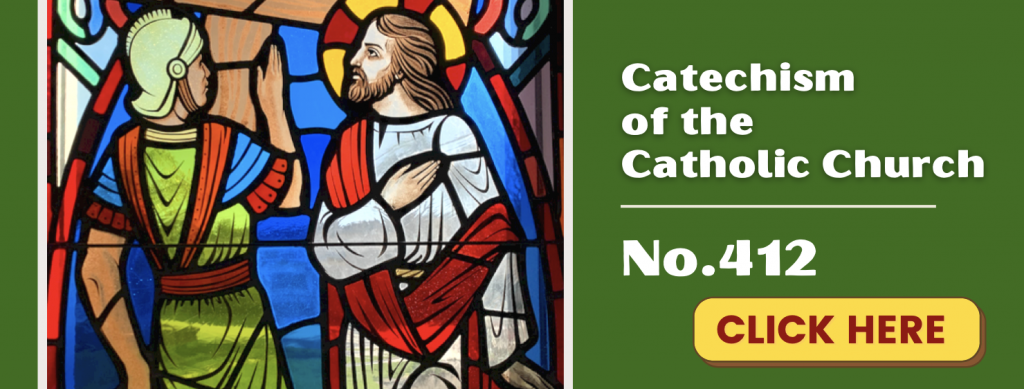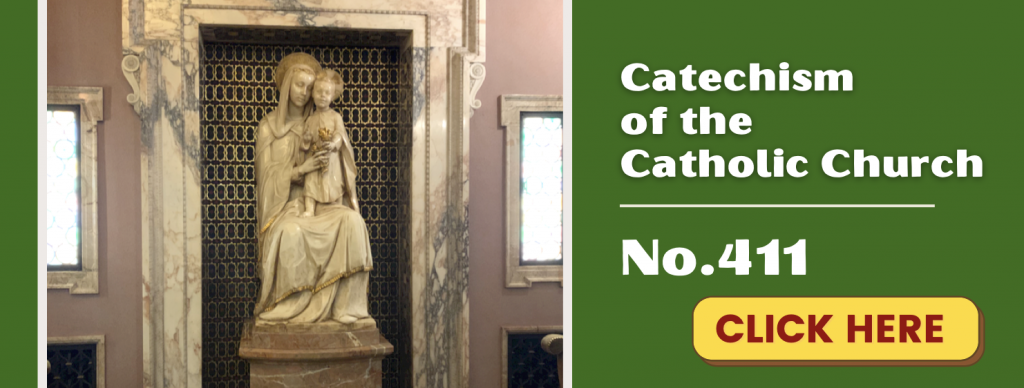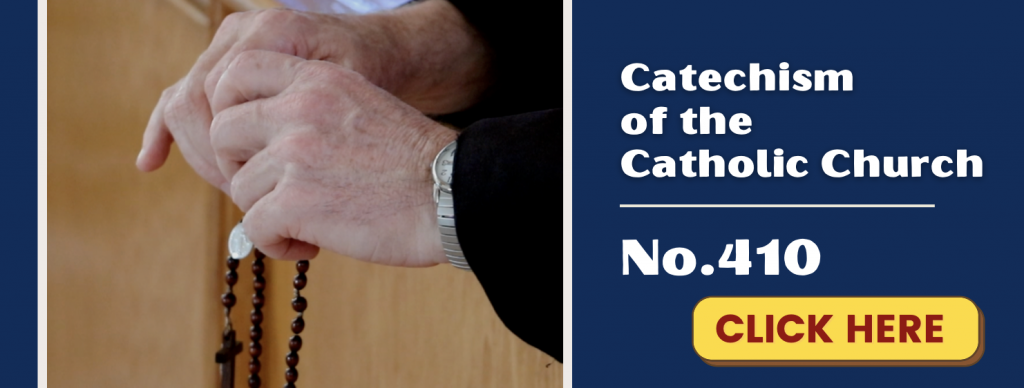


“For greater things you were born.” (Ven. Mother Luisita)
TUESDAY, July 20th Mt. 12: 46-50 “And stretching out his hand toward his disciples, he said, ‘Here are my mother and my brothers. For whoever does the will of my heavenly Father is my brother, and sister, and mother.’”
- How beautiful that Jesus calls all who strive to do the will of His heavenly Father, his brother, sister, and mother!
- An important way for us to live out brotherhood and sisterhood with Christ is through prayers of Contrition and Reparation, not just for our personal sins, but for the sins of the whole world!
- Fr. Ed Broom gives us the template to carry this out!
ENRICH YOUR PRAYER LIFE WITH PRAYERS OF REPARATION by Fr. Ed Broom, OMV
We should constantly be striving to improve upon our prayer life. What air is to our lungs, prayer is to our soul. It is essential; it is a matter of life and death! The forms of prayer are multiple. A simple way to understand the key forms of prayer is by means of a four-letter acronym: A. C. T. S.
- A—stands for Adoration, the highest form of prayer that we can offer to Almighty God. This is the prayer of the highest choir of angels in heaven.
- C—stands for Contrition—meaning? We are all sinners and we are called to repent firmly for our own personal sins, trusting always in God’s mercy!
- T—stands for Thanksgiving. All that we have—aside from our own personal sins—are gifts from the infinite bounty and generosity of Almighty God’s love!
- S—stands for Supplication. Not a word well-known or used in common parlance. It simply means the prayer of petition. Saint Augustine says with great clarity: “We are all beggars before God.” We all need God desperately for everything!
In this short essay we would like to focus specifically upon the prayer form of Contrition—which means sorrow for our sins. However, an integral part of Contrition should also be our desire to make many forms of reparation for our sins, as well as for the sins of the world at large. We pray in the Chaplet of Divine Mercy, that Jesus gave to the world through Saint Faustina Kowalska, these words: “Have mercy on us and on the whole world.” That is to say, our prayer should take on a universal dimension; actually the word Catholic means “Universal”—all embracing, open to all people who live upon planet earth, and also, all those who have passed from this world to the next! Without further ado, let us launch into a prayer in which we want to beg pardon and make reparation—meaning to make up for and to satisfy God’s justice—for all people, ourselves and the whole world!
You might be wondering, then who should we pray for, in what order of importance, where should we pray, when should we pray, how should we pray and with what disposition of heart? We would like to offer a list of those for whom we should pray; remember, with true Contrition and Firm Purpose of Reparation!
1. Me, Myself, & I
You might be thinking that this is somewhat egotistic, self-centered and even narcissistic. Not true! God created each and every one of us with a specific purpose in mind: to praise Him and to save our own individual soul. It is not egoistic to pray for our own conversion, sanctification, growth in holiness and final perseverance. Rather, it is a matter of life and death. We all must individually, in the words of the Apostle Saint Paul, “work out our salvation in fear and in trembling.” (Phil. 2:12) “For the sake of His sorrowful Passion, have mercy on us and on the whole world.”
2. Our Family Members
Then our prayers should extend to our family members, first and foremost! Spouses should pray for each other, then their children, then their parents, and finally other blood-relatives. God brought you together in a family; you should pray fervent prayers of reparation for the many sins of all of your family members. May your prayers serve to make up for the damage they have done through their many sins. “For the sake of His sorrowful Passion, have mercy on us and on the whole world.”
3. Catholic Church at Large and in its Entirety
The Catholic Church is the church that has the most members in the entire world—more than one billion members presently! To be honest, not all are ready to be canonized right now! All are sinners, and to make things worse, most Catholics do not even practice their faith—that is to say, they do not even attend Sunday Mass. Just this one comment merits a huge dose of reparation from many fervent souls! If not us, then who? “For the sake of His sorrowful Passion, have mercy on us and on the whole world.”
4. Your Specific Local Church
Now the specific local Catholic church that we attend consists of many unrepentant sinners. Many of these Catholics do not attend Mass. Most likely, many question certain Church practices. Many have gaping wounds that they are not striving to heal. Many have never begged pardon for their own sins, much less the sins of members of their families. For those in our local church, our local parish to which we belong, let us offer fervent prayers of reparation: “For the sake of His sorrowful Passion, have mercy on us and on the whole world.”
5. “Social Sins that Have Become Embedded in the Fiber of Society”
Pope Saint John Paul II coined this long theological term. What it means is simply this: there are some serious sins that are not only individual and personal, but they have actually become embedded into the very fiber, marrow, if you like heart of society. These structural sins would be the following: abortion, legalization of same-sex unions, the legalization in some States of euthanasia—killing the elderly and infirm. For these social sins embedded in and encrusted on the very fabric and heart of society, we beg pardon and willingly intend reparation. About every 20 seconds an innocent baby is being murdered through the abominable crime and heinous sin of abortion. “For the sake of His sorrowful Passion, have mercy on us and on the whole world.”
6. Sinners Who Deny That They Are Sinners
There is a class of individuals, indeed very prevalent and widespread in society today, and they are those individuals who claim stridently that they actually have no sins whatsoever. Pope Ven. Pius XII of blessed memory stated: “The sin of the century is the loss of the sense of sin.” Many Catholics have not approached the Sacrament of Confession for years. They blurt out, with an air of pride and arrogance: “Well, I have no sins!” We all know that they have many sins, as we all do, but unfortunately, they have suppressed, put to sleep, or even killed their conscience. For this large mass of individuals who claim to be saints already, we must beg pardon and offer prayers of reparation for their sins and for their eternal salvation. “For the sake of His sorrowful Passion, have mercy on us and on the whole world.”
7. Deathbed Sinners
A very important class of people whom we must pray for urgently (Jesus constantly reminds Saint Faustina to pray for them) are those individuals who are about to die and most unfortunately are in the state of mortal sin, so that their eternal salvation is in grave jeopardy. For this reason, the great woman Doctor of the Church, Saint Catherine of Siena, asserted: “The two most important moments in our life are the following: now and at the hour of our death.” Why? We only have this precise moment, “Now.” “For the sake of His sorrowful Passion, have mercy on us and on the whole world.”
Copyright 2021 Oblates of the Virgin Mary / St. Peter Chanel Church, Hawaiian Gardens, CA











